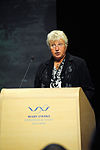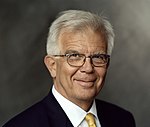1994 Swedish general election
| |||||||||||||||||||||||||||||||||||||||||||||||||||||||||||||||||||||||||||||||||||||||||||||||||||||||||||||||||||||||
All 349 seats to the Riksdag 175 seats were needed for a majority | |||||||||||||||||||||||||||||||||||||||||||||||||||||||||||||||||||||||||||||||||||||||||||||||||||||||||||||||||||||||
|---|---|---|---|---|---|---|---|---|---|---|---|---|---|---|---|---|---|---|---|---|---|---|---|---|---|---|---|---|---|---|---|---|---|---|---|---|---|---|---|---|---|---|---|---|---|---|---|---|---|---|---|---|---|---|---|---|---|---|---|---|---|---|---|---|---|---|---|---|---|---|---|---|---|---|---|---|---|---|---|---|---|---|---|---|---|---|---|---|---|---|---|---|---|---|---|---|---|---|---|---|---|---|---|---|---|---|---|---|---|---|---|---|---|---|---|---|---|---|---|
| |||||||||||||||||||||||||||||||||||||||||||||||||||||||||||||||||||||||||||||||||||||||||||||||||||||||||||||||||||||||
| |||||||||||||||||||||||||||||||||||||||||||||||||||||||||||||||||||||||||||||||||||||||||||||||||||||||||||||||||||||||

Election results.
General elections were held in Sweden on 18 September 1994.[1] The Swedish Social Democratic Party remained the largest party in the Riksdag, winning 161 of the 349 seats.[2] Led by Ingvar Carlsson, the party returned to power and formed a minority government after the election. The Greens also returned to the Riksdag after a three-year absence.
The Moderates slightly improved on their 1991 performance, but the Centre Party, the Liberals and the Christian Democrats all fared poorly, the latter barely holding on to their parliamentary representation. New Democracy, a right-wing populist political party which had entered the Riksdag three years earlier, performed poorly, losing most of its voters and all of its seats in the Riksdag. In total the party's vote share dropped from 6.7% in 1991 to 1.2% in 1994. The election introduced an extended electoral cycle of four years, replacing the previous three-year terms.
It was also notable for being the first electoral event in the world whose official results were published live on the nascent World Wide Web (other countries had previously used the then-fledging Internet to officially broadcast election results, but with simpler methods such as e-mail lists).[3]
Results
| Party | Votes | % | Seats | +/– |
|---|---|---|---|---|
| Swedish Social Democratic Party | 2,513,905 | 45.3 | 161 | +23 |
| Moderate Party | 1,243,253 | 22.4 | 80 | 0 |
| Centre Party | 425,153 | 7.7 | 27 | –4 |
| Liberal People's Party | 399,556 | 7.2 | 26 | –7 |
| Left Party | 342,988 | 6.2 | 22 | +6 |
| Green Party | 279,042 | 5.0 | 18 | +18 |
| Christian Democratic Society Party | 225,974 | 4.1 | 15 | –11 |
| New Democracy | 68,663 | 1.2 | 0 | –25 |
| Other parties | 57,006 | 1.0 | 0 | 0 |
| Invalid/blank votes | 84,853 | – | – | – |
| Total | 5,640,393 | 100 | 349 | 0 |
| Registered voters/turnout | 6,496,120 | 86.8 | – | – |
| Source: Nohlen & Stöver | ||||
By municipality

Votes by municipality. The municipalities are the color of the party that got the most votes within the coalition that won relative majority.

Cartogram of the map to the left with each municipality rescaled to the number of valid votes cast.

Map showing the voting shifts from the 1991 to the 1994 election. Darker blue indicates a municipality voted more towards the parties that formed the centre-right bloc. Darker red indicates a municipality voted more towards the parties that form the left-wing bloc.

Votes by municipality as a scale from red/Left-wing bloc to blue/Centre-right bloc.

Cartogram of vote with each municipality rescaled in proportion to number of valid votes cast. Deeper blue represents a relative majority for the centre-right coalition, brighter red represents a relative majority for the left-wing coalition.
References
^ Nohlen, D & Stöver, P (2010) Elections in Europe: A data handbook, p1858 .mw-parser-output cite.citation{font-style:inherit}.mw-parser-output q{quotes:"""""""'""'"}.mw-parser-output code.cs1-code{color:inherit;background:inherit;border:inherit;padding:inherit}.mw-parser-output .cs1-lock-free a{background:url("//upload.wikimedia.org/wikipedia/commons/thumb/6/65/Lock-green.svg/9px-Lock-green.svg.png")no-repeat;background-position:right .1em center}.mw-parser-output .cs1-lock-limited a,.mw-parser-output .cs1-lock-registration a{background:url("//upload.wikimedia.org/wikipedia/commons/thumb/d/d6/Lock-gray-alt-2.svg/9px-Lock-gray-alt-2.svg.png")no-repeat;background-position:right .1em center}.mw-parser-output .cs1-lock-subscription a{background:url("//upload.wikimedia.org/wikipedia/commons/thumb/a/aa/Lock-red-alt-2.svg/9px-Lock-red-alt-2.svg.png")no-repeat;background-position:right .1em center}.mw-parser-output .cs1-subscription,.mw-parser-output .cs1-registration{color:#555}.mw-parser-output .cs1-subscription span,.mw-parser-output .cs1-registration span{border-bottom:1px dotted;cursor:help}.mw-parser-output .cs1-hidden-error{display:none;font-size:100%}.mw-parser-output .cs1-visible-error{font-size:100%}.mw-parser-output .cs1-subscription,.mw-parser-output .cs1-registration,.mw-parser-output .cs1-format{font-size:95%}.mw-parser-output .cs1-kern-left,.mw-parser-output .cs1-kern-wl-left{padding-left:0.2em}.mw-parser-output .cs1-kern-right,.mw-parser-output .cs1-kern-wl-right{padding-right:0.2em}
ISBN 978-3-8329-5609-7
^ Nohlen & Stöver, p1873
^ General aspects of Sweden's electoral system











